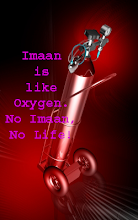1. What is Shari’ah?
The Shari’ah is the Divine Law. The word ‘Shari’ah’ means ‘a path leading to water’. Water is the source of life without which man dies. Shari’ah is the path leading to Allah. Leaving this path is like leaving the path of Allah. Shari’ah, therefore, is the path through which Allah wishes men to walk, and hence every deed without exception falls within the perspective of the law. It signifies an entire way of life
2. What are the sources of Shari’ah?
The Shari’ah is based on two main sources, the Qur’an and the Sunnah of Prophet Muhammad (peace be upon him). It has two secondary sources, the Ijma and Qiyas.
3. Can Shari’ah be changed? Why?
No, Shari’ah can never be changed because it is the Divine Law, formulated by none other than the Creator and Sustainer of mankind Who knows what is best for His creation.
4. Compare Shari’ah with man-made laws.
Shari’ah | Man-made laws |
Formulated by the Creator Who has Perfect Knowledge of everything. | Formulated by human beings whose knowledge is utterly imperfect. |
Applicable the world over. It is universal in nature. | Applicable only in certain places. It is regional or local in nature. For e.g. Laws of a country cannot be applied in another country. |
Can never be changed. | Changeable every now and then |
When applied in life, doesn’t conflict with human nature. | Miserably in conflict with human nature. |
No one is above the Law | Suffers bias and favouritism |
Based on Justice and Equality | Hardly any role for justice and equality |
Ijma – consensus - is the result of long deliberations by Muslim scholars who are well versed in the Qur’an and Hadith and who work together to reach an agreed formula for solving a particular problem.
6. What is Qiyas?
Qiyas means comparing one thing with another – a reference – and is used to solve modern problems by finding something similar in the Qur’an or Hadith. For example, no one ‘fixed’ heroin in the time of the Prophet, so he never considered it. Through the use of Qiyas, Muslims are able to compare drugs with alcohol – which are also addictive, harmful to bodily functions and mental process – are conclude that drug-taking is against Shariah.
7. Write a brief essay on: Shariah – the Divine Law.
The Shari’ah is the Divine Law. The word ‘Shari’ah’ means ‘a path leading to water’. Water is the source of life without which man dies. Shari’ah is the path leading to Allah. Leaving this path is like leaving the path of Allah. Shari’ah, therefore, is the path through which Allah wishes men to walk, and hence every deed without exception falls within the perspective of the law. It signifies an entire way of life.
The Shari’ah is based on two main sources, the Qur’an and the Sunnah of Prophet Muhammad (peace be upon him). It has two secondary sources, the Ijma and Qiyas.
A Muslim must look into the Qur’an first for finding a solution to his problem.
If he finds an answer in the Qur’an, then he must follow it. If he doesn’t find an answer, he must then refer to the Hadith. If he finds an answer in the Sunnah of the Prophet, he must follow it. If he doesn’t find an answer in the Hadith even, then he must refer to the consensus of the Ummah.
Ijma – consensus - is the result of long deliberations by Muslim scholars who are well versed in the Qur’an and Hadith and who work together to reach an agreed formula for solving a particular problem.
Qiyas means comparing one thing with another – a reference – and is used to solve modern problems by finding something similar in the Qur’an or Hadith. For example, no one ‘fixed’ heroin in the time of the Prophet so he never considered it. Through the use of Qiyas, Muslims are able to compare drugs with alcohol – which are also addictive, harmful to bodily functions and mental process – are conclude that drug-taking is against Shariah.
Shariah is Divine in nature and therefore cannot be changed. Shari’ah transcends time and space.
8. What is Fiqh?
Fiqh is Islamic jurisprudence – the science of Islamic law. The word 'fiqh' means ‘knowledge’ or ‘understanding’ and refers to the collection of laws. An action is either lawful or unlawful and the law is usually only concerned with unlawful actions. But in Fiqh, all actions are discussed and there are five categories of behaviour in descending order of lawfulness:
- Fard or Wajib – compulsory: doing these is rewarded and not doing them is punished.
- Mandub – recommended: doing them is rewarded but not doing them is not punished.
- Mubah – permissible: doing them is allowed because they have not been forbidden.
- Makruh – disliked: doing them is discouraged but not punished.
- Haram – forbidden: doing them is punished.


















